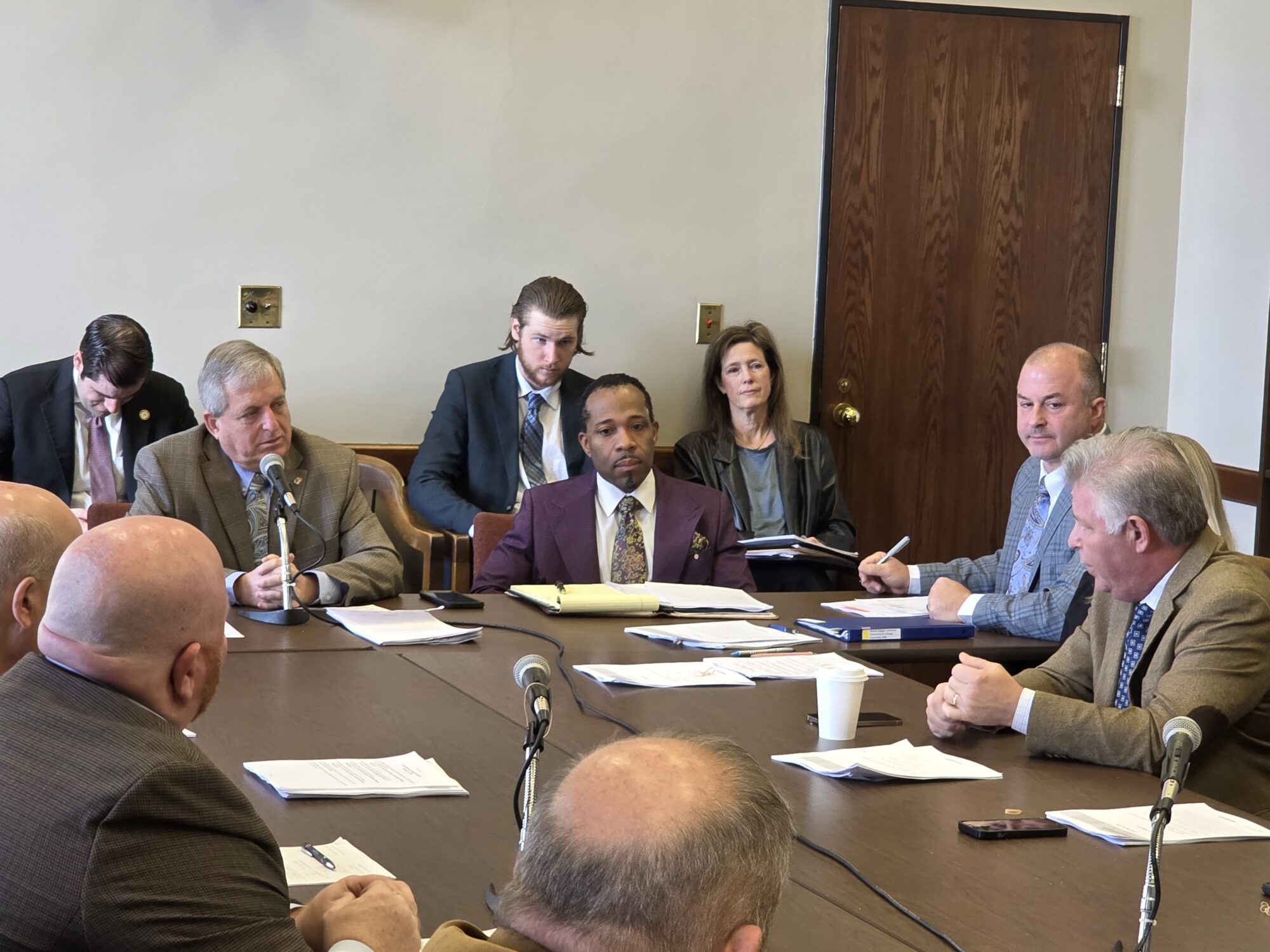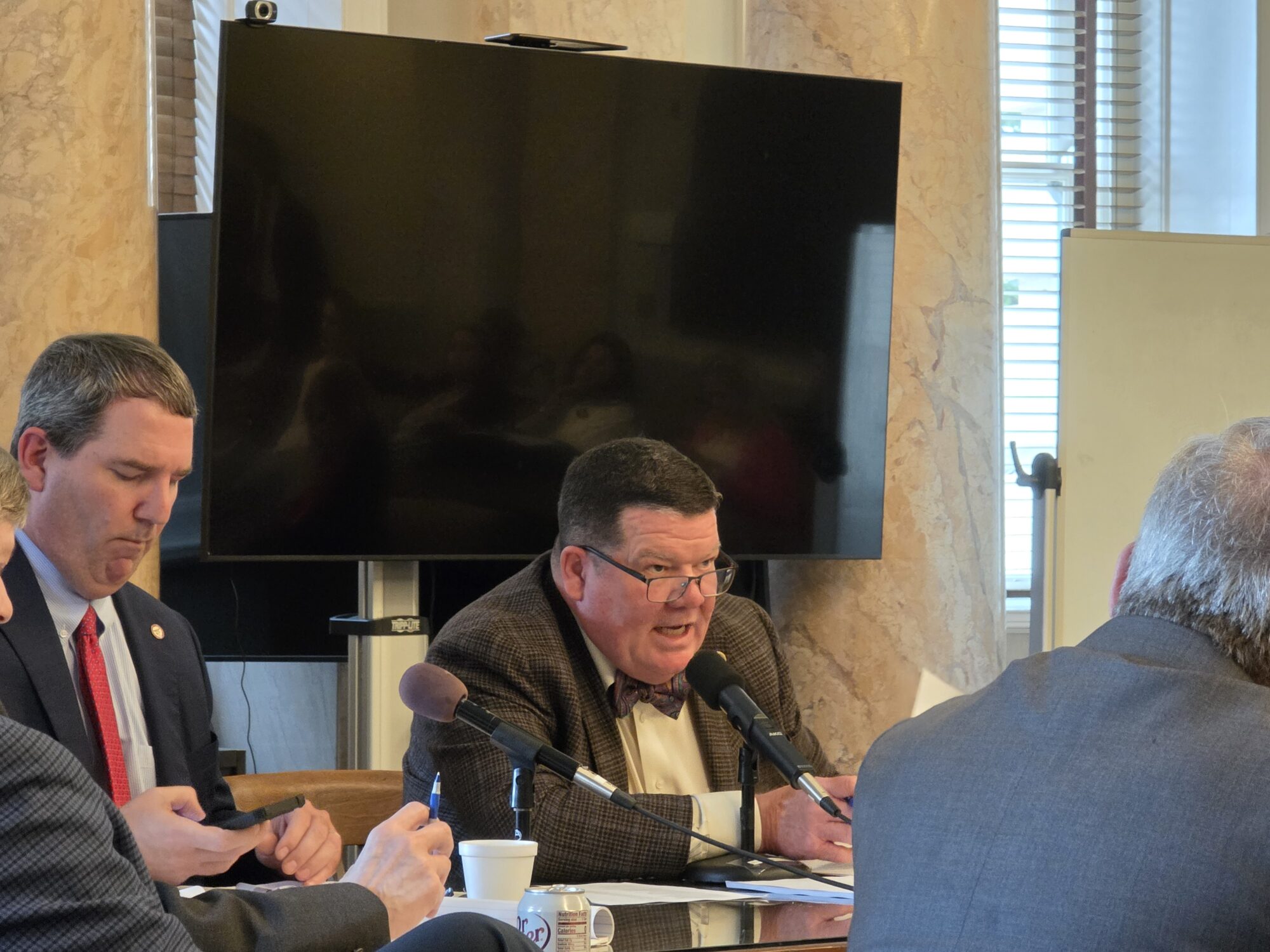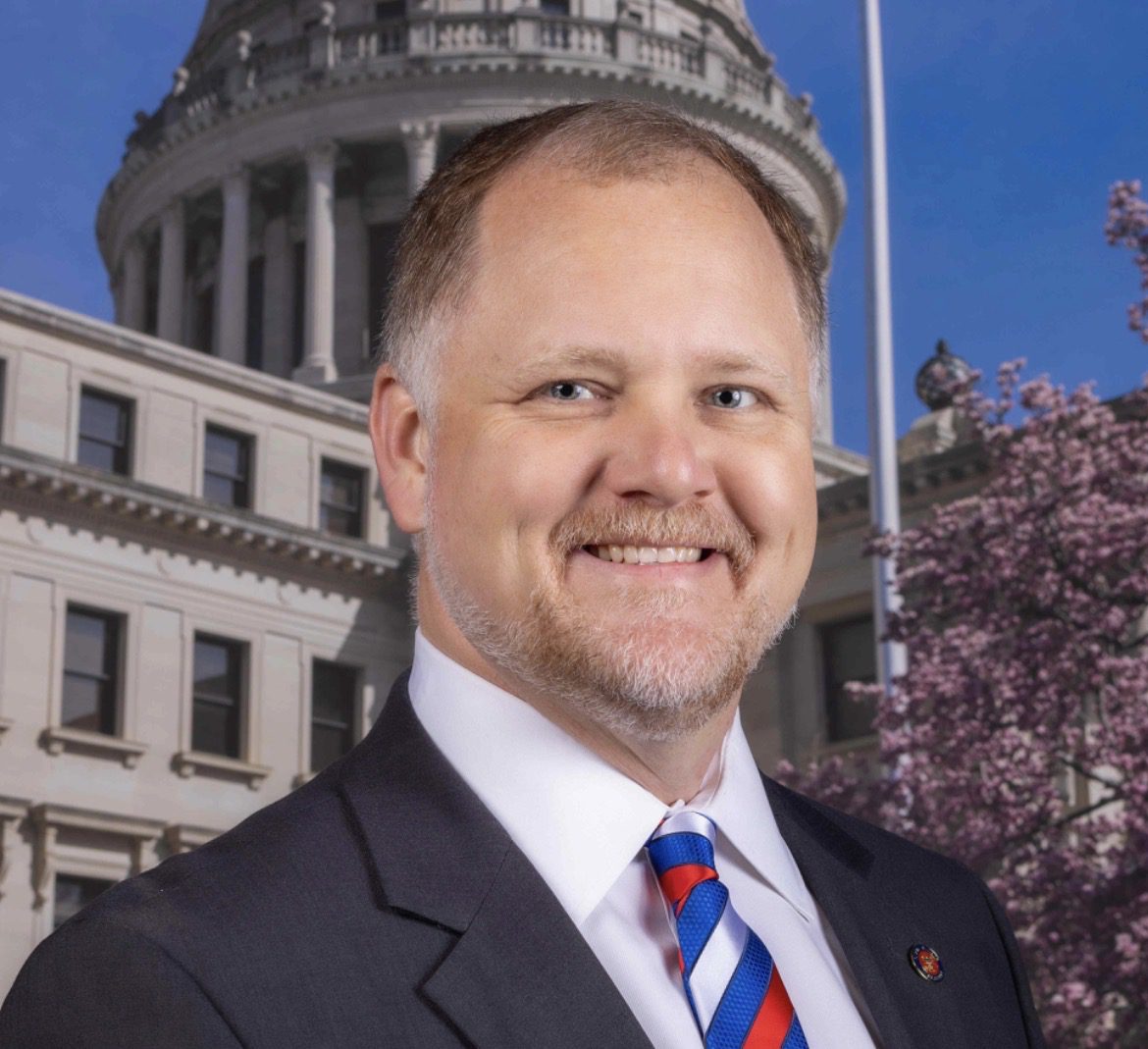
Dr. Lance Evans (Photo from MDE on Facebook)
Listen to the audio version of this article (generated by AI).
- The State Superintendent encouraged Senators Tuesday not to tie teacher pay raise legislation to the House’s push to expand school choice.
In preparation for the upcoming 2026 Legislative session, the Mississippi Senate Education Committee held a hearing Tuesday to gather information as they consider possible legislation to be filed come January.
While the committee’s primary focus was on potentially increasing teacher pay and addressing teacher retention, several speakers touched on the push by the House to expand education freedom in Mississippi.
Teacher pay and school choice
The committee heard testimony regarding barriers education leaders face as they explore ways to ensure continued educational gains in the state, including the need for increased teacher pay, more licensed teachers, and methods to address chronic absenteeism.
A number of speakers Tuesday touched on the need for increased teacher pay, including State Superintendent Dr. Lance Evans and local superintendents from Scott County, Jackson, Oxford, and Greene County.
Nearly all of the administrators also spoke against expanding school choice.
“Who is school choice for?” Dr. Evans asked. “And I think that’s the question I would encourage you as our state legislators to ask, as you’re having these conversations, who is school choice for?”
The State Superintendent believes what is being rolled out by proponents of school choice in the coming session will not help disadvantaged students, such as English learners or those with developmental special needs, to go to another school for a better outcome. Evans told lawmakers the reality is that since private schools have the ability to be selective in not just curriculum, but also student body, the extra expense of educating a student with special needs will be a barrier for their entry.
There is a higher cost to educate students with special needs. Maureen Long with Canopy Children’s Solutions told the senators that the average cost to educate one pupil per year with special needs is about $38,000. Canopy Children’s Solutions educates children who have ADHD, dyslexia, or are on the autism spectrum.
“What school’s going to choose that child? What school is going to choose that special education child that’s going to cost, we heard a presentation earlier, that’s going to cost $38,000 per pupil to educate?” Evans asked, referring to Long’s presentation.
Instead, Dr, Evans asked the Senate committee to consider rewarding those responsible for the state’s educational growth, the teachers, by adding to their compensation and ensuring their retention. Evans predicted that any bill that comes out of the House next session focused on teacher pay raises will have school choice language attached to it.
“I’m just going to make a request. Let the ‘Mississippi Miracle’ stand on the merits of our classroom teachers,” Evans said. “Let school choice stand on its own merits. Don’t tie them together. If school choice is the best for Mississippi, the data will show it. It’ll stand on its own merit.”
Mississippi lawmakers have raised teacher pay in recent years. However, as neighboring states followed suit, the Magnolia State largely remains behind the region and national averages.
Education leaders say lagging teacher pay has resulted in vacancies in certified teacher and teaching assistant positions. Oxford Schools Superintendent Bradley Roberson said that disparity is especially evident in the pay for teacher assistants, who make an average of $22,840 in Mississippi.
One of the ways Roberson suggested improving the attractiveness of the teaching profession was to condense the pay scale to make raises more meaningful to the educator’s take home pay. Take home pay, or net pay, is the amount an employee receives after all taxes, insurance, and other deductions are collected.
Megan Boren, Director at Southern Regional Education Board, told the committee that according to data from the past decade, Mississippi’s average educator salary is about $4,000 less than the average of the 16 states within SREB’s area, which includes Alabama, Arkansas, Delaware, Florida, Georgia, Kentucky, Louisiana, Maryland, Mississippi, North Carolina, Oklahoma, South Carolina, Tennessee, Texas, Virginia and West Virginia. She said that is further impacted when net pay is considered.
Low take home pay is also a barrier preventing young people from entering education and causing existing teachers to leave the profession, Boren described. To add to that problem, health insurance premiums are expected to increase in the coming year, further affecting take home pay.
State Senator Michael McClendon (R) said that the new tier in the state employees’ retirement system, PERS, will adversely affect recruitment efforts, and not just for teachers. He said the change coming in March 2026 will impact all new state employees, including law enforcement officers who could serve as school resource officers. There is also a lack of school resource officers in many districts.
“It definitely needs to be relooked at, I believe,” McClendon said of the new tier for PERS, which was passed in the 2025 session.
To help new teachers succeed, Boren said lawmakers should consider including at least a year of teacher residency, mentorship support systems, and more opportunities for advancement.
Senators asked to expand charter schools
Senators went on to hear discussion on the desire to expand charter schools beyond their current restrictions.
Lisa Karmacharya, Executive Director of Mississippi’s Charter School Authorizer Board, asked the committee for changes to allow charter schools to expand to more districts. Current state law restricts charter schools to districts rated a D or F on the accountability model used by the Mississippi Department of Education. In 2013, more than 35 districts were rated that low, but today that number has declined as part of the educational advancements made statewide.
“Well, that number is now at 15, which places significant restrictions on where charter schools expand and it limits access to public options for families,” explained Karmacharya.
During her presentation, she added that charter schools are just like public schools in that they cannot be discriminatory in admissions, must administer state tests, and are held accountable for their outcomes.
“They are governed by members that are defined as a public servant under the ethics law. They must comply with open meetings. They are publicly accountable. They are open to all students. Students are required to take all state assessments from kindergarten through the high school, and they are subject to oversight and accountability by the authorizer,” Karmacharya said.
Ultimately, Karmacharya said the Charter School Authorizer Board would like the ability to establish charters schools in any district, regardless of assessment grade.
Legislation passed by the House in the 2025 session would have allowed charter schools to expand to C-rated districts. That measure died in the Senate.
There are 10 charters schools operating in the state currently, but most of them hold assessment grades lower than a C. Senate Education chairman Dennis DeBar (R) expressed concern over the Legislature allowing more charter schools when their performance is lower overall than most traditional public schools.
“I am concerned that the schools, the charter schools, have not progressed to where they need to be,” DeBar said. “We have one C, five D’s, an F, and so like Senator (Brice) Wiggins, I would like to see more charter schools but it’s just hard to justify that when the performance that we have just isn’t up to snuff.”











